Bachelor of Physics
Overview
The Faculty of Science at Al-Baha University was established by Royal Decree No. 9682/M, dated 5/8/1426 H. It began its academic activities in 1427 H with the aim of effectively contributing to expanding the higher education base in the Kingdom of Saudi Arabia in the fields of basic and applied sciences and meeting the needs of the public and private sectors' job market. Currently, the Faculty of Science at Al-Baha University has developed study programs to equip students with scientific and practical skills and knowledge, primarily focusing on the use of modern technology in four main departments: Biology, Mathematics, Physics, and Chemistry. These programs aim to qualify graduates for employment in governmental and private institutions in the provinces.
We are delighted to present to you a comprehensive guide for program members. The purpose of this guide is to provide you with essential regulations, systems, and detailed instructions pertaining to the rights and responsibilities that play a vital role in realizing the vision, mission, and objectives of the bachelor's degree in physics program.
We are glad that you are part of our program of physics. If you have an ever-growing thirst for knowledge about the fundamental dynamics of the universe around you and the covert physical world, then this program is what you are looking for.
The program outlines and subjects are aimed at letting the students acquire sufficient knowledge of physics concepts, laws, theories, and experimental techniques. The courses are designed for students to explore important topics, for instance, quantum mechanics, nuclear physics, and solid-state physics. It is underpinned by professionals who are experts in their fields.
Based on the Saudi classification of occupations, a graduate of the physics program has various choices like being a teacher, physicist, nuclear physics Specialist, etc., and can even do a postgraduate study.
Program Vision
“Distinguished physics program in education and scientific research to serve the community.”
Program Mission
“Providing distinguished educational and research program in physics sciences to prepare graduates that contribute to the community service through motivating academic environment and efficient use of the resources.”
Program Objectives
Graduates will be able to:
- Creating a distinguished academic environment to increase the competitiveness of the students in physics program.
- Achieving excellence in the teaching staff of the physics program.
- Developing and strengthening the scientific research system in the physics.
- Creating postgraduate program that meets the needs of the labor market.
- Developing and strengthening community service programs in the physics.
- Using efficiently the self-resources.
Program’s Graduate Attributes
- Ability to think critically, by analyzing the principles and basics of physics and their applications, evaluating and integrating theories, concepts and practices from different sources.
- Ability to find creative and innovate solutions to complex physics problems.
- Ability to work effectively in teams through the application of knowledge and skills such as team-leading and organizing, task management, and performance enhancement.
- Ability to establish and maintain effective working and communicating relationships with others.
- Ability to use scientific software and internet applications to perform tasks in physics efficiently and effectively.
- Ability to interpret facts, figures, statistics and data, form necessary implications, and utilize them objectively in relevant contexts in physics.
- Ability to show flexible attitudes in relevant contexts and adapt to changing circumstances and environments.
- Ability to set plans and strategies, and provide initiatives necessary for successful achievement of objectives.
- Ability to conduct various physics experiments and researches in an appropriate.
- Ability to work smoothly with others by utilizing appropriate manners, etiquette, communication, and networking.
- Ability to bear social responsibility and accountability of citizenship according to Saudi societal values.
Program Learning Outcomes
| Knowledge and Understanding | |
| K1 | Recall the fundamental theoretical principles and applications associated with the fields of physics. |
| K2 | Describe the essential facts, principles, and theories in the related basic sciences. |
| K3 | Recognize the latest developments at the forefront of physics including critical awareness of current research. |
| Skills | |
| S1 | Apply knowledge of physics to understand physical phenomena. |
| S2 | Apply appropriate mathematical concepts and computational techniques to solve problems in various fields of physics and basic sciences. |
| S3 | Conduct experiments and interpret data and write scientific reports in various fields of physics and basic sciences. |
| S4 | Communicate effectively by using forms of presentation appropriate for different topics. |
| Values, Autonomy, and Responsibility | |
| V1 | Demonstrate integrity, professional and academic ethics and participate effectively in social and cultural activities. |
| V2 | Show interpersonal skills and leadership of teamwork and take individual responsibility for professional development. |
Potential Jobs
• Physicist (211101)
• Astronomy Specialist (211102)
• Astrophysicist (211103)
• Nuclear Physics Specialist (211104)
• Meteorologist (211201)
• Climatology Specialist (211202)
• Geologist (211401)
• Geophysicist (211402)
• Petroleum Geologist (211403)
• Hydrologist (211404)
• Natural Resources Mining Geologist (211405)
• Earthquake Monitoring Specialist (211406)
• Oceanography Specialist (211407)
• Medical Physicist (211104)
• Demonstrator (231027)
• Secondary physics teacher (233010)
• Middle school science teacher (233034)
• Applied sciences trainer (232005)
• Academic researcher (235906)



